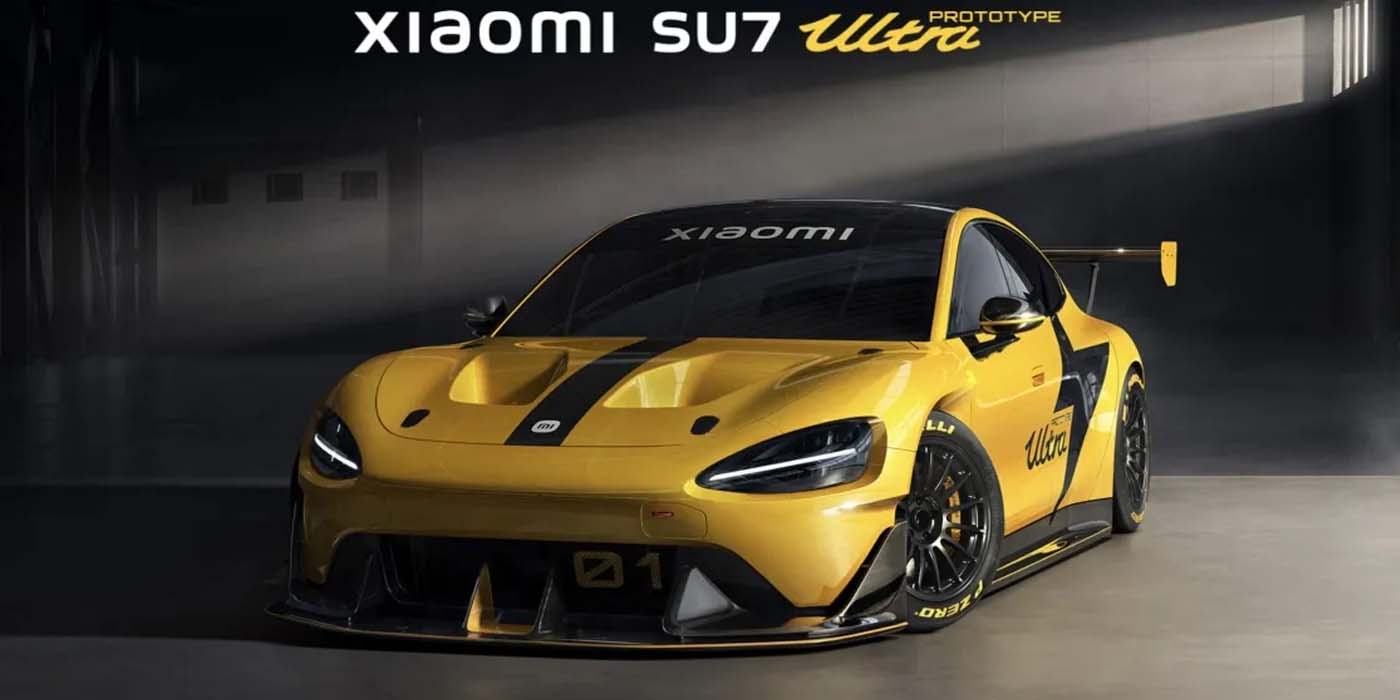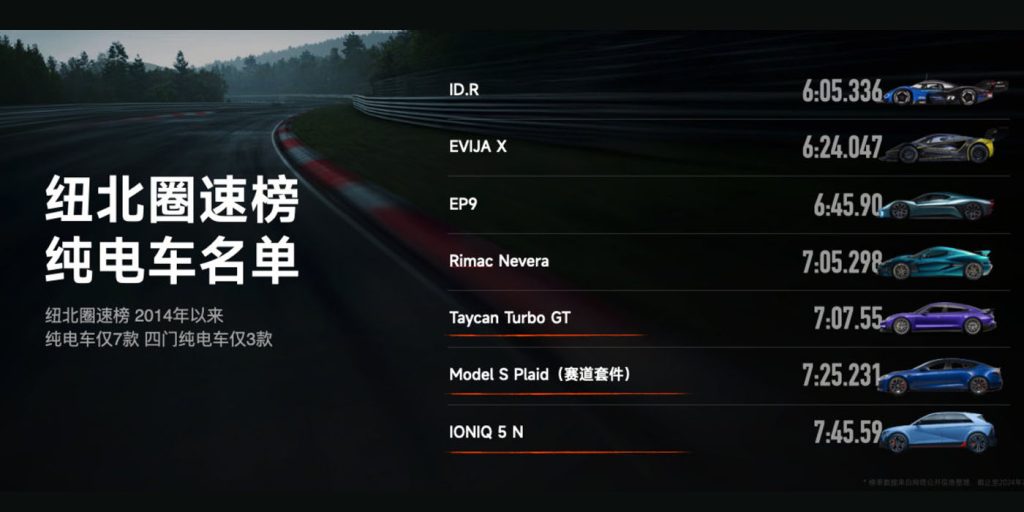
Mere days after Xiaomi Automobile debuted a new tri-motor prototype version of its flagship SU7 EV, its CEO confirmed it will transition into a production version called the SU7 Ultra that maintains nearly all the same components. Before then, however, the 1,548hp BEV will chase some world records at a world-famous track.
As a renowned smartphone developer, Xiaomi’s infant automotive arm (founded in September 2021) continues to make its presence known in the industry. After faster-than-expected development, Xiaomi launched its first-ever BEV model, the SU7, in late 2023 to much acclaim.
As planned, the smartphone specialist capitalized off its customer base of 20 million phone users in China, garnering over 50,000 orders in the first 27 minutes it went on sale, helping propel its market value by a whopping $4 billion. Originally planning to crank out 60,000 examples of the SU7 this year, Xiaomi chose to bolster production to keep up with demand.
Based on its quick start, it’s hard to tell that the tech company is new to building cars. In April, we reported that the automaker had rolled 10,000 SU7 models off its assembly lines in just 32 days. The SU7 initially launched in three variants: Standard, Pro, and Max – starting at prices of RMB 215,900 ($29,675), RMB 245,900 ($33,800), and RMB 299,900 ($41,225), respectively.
However, last week, Xiaomi unveiled a new tri-motor prototype called the SU7 Ultra. It can go 0-100 km/h (0-62 mph) in a scorching 1.97 seconds and has a top speed of 350 km/h (217 mph). As such, the Xiaomi SU7 Ultra was designed to challenge existing records as the “world’s fastest four-door vehicle.”
During a recent live event, Xiaomi’s CEO revealed that the SU7 Ultra prototype will evolve into a very similar production version next year, and to continue to build hype leading up to that milestone, it’s current iteration is going to show its stuff at the world-famous Nürburgring.
Xiaomi SU7 Ultra to hit Nürburgring ahead of production
During an annual press event recently held in China, Xiaomi founder, chairman, and CEO Lei Jun confirmed a production version of the SU7 Ultra is in the works and should arrive in the first half of 2025.
For cost reasons, Xiaomi chose to abandon the all-carbon fiber body currently utilized in the SU7 Ultra prototype, which weighs in at 1,900 kg (4,189 lbs). However, the production version will maintain most of the rest of its current tech, including three V8s electric motors and 800V architecture powered by CATL’s Qilin II batteries that can recharge from 0-100% in twelve minutes.
For comparison, the SU7 weighs 1,980 kg in the standard version and 2,205 kg in both the Pro and Max variants.
Less carbon fiber will certainly mean more weight on the production version of the Xiaomi SU7 Ultra, but it still has plenty of power to maintain its status as one of the fastest mass-market four-door vehicles in the world.
That said, we still don’t know the actual size of the production version’s battery or what its added weight will equate to. The Standard version of the SU7 weighs 1,980 kg (4,365 lbs), while the Max and Pro variants top out at 2,205 kg (4,861 lbs).
Regarding pricing, Lei shared that the Xiaomi SU7 Ultra production version will be slightly more expensive, but not by much.

For now, all eyes will be on Xiaomi at Nürburgring this October, when the prototype version of the SU7 Ultra looks to join the list of speedy BEVs shared above. Xiaomi’s CEO shared that the company expects to produce another 10,000 units of the SU7 in July, tallying about 20,000 builds in its first two months of full-fledged production.
FTC: We use income earning auto affiliate links. More.
















